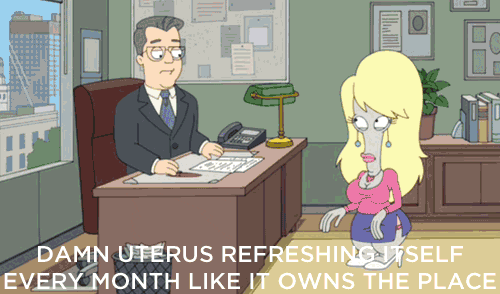
When I got my first serious boyfriend, I thought I knew it all. My mum was a health teacher, so I knew about the birds and the bees from a young age, and I’d been taught all about how important condoms are to prevent sexually transmitted infections. What I didn’t know about, though? That there was another method of contraception that could also have secondary benefits for me as well.
The doctor put me on the pill. At the time I had no knowledge of how it worked, but since then I’ve learned that there is a whole world contained in that little monthly pack o’ pills. Here’s what you should know about your pill — and how to make sure it’s right for you:

there are plenty of options out there
Which pill should you be taking?
Before we get into it, I want to make it clear that the pill is one of a host of contraceptive options (including things like an IUD or implant) that are available to you, and it is entirely down to your own personal circumstances. Each person’s body is different and has its own thing going on so it’s important you check in with your doctor to find out what works for you.
If you’re on the pill but you want to think about whether you’re on the right one, check out this survey, and take the answers to your doctor to chat about your options. In addition to providing contraception, different pills may have different side effects and secondary benefits. Heavy periods, bloating, cramps, acne – they’re not necessarily something you just have to accept and might be niggles you can manage better.
Side effects of the pill might include things like nausea, unscheduled bleeding, breast tenderness , mood changes and headaches — so one of the most important things you can do is ensure that the benefits balance out with the potential side effects. Nobody wants the headache of being on the wrong pill, so make sure you weigh up your options.
The pill may also have other side effects, so speak to your doctor and refer to reputable websites to find out more.

How does the pill work?
If you’ve only ever gone to the doctors asking for, “the pill please”, you might be surprised to know that although the oral contraceptive pill is the general term for it, there are a lot of different types and options under that banner.
The combined oral contraceptive pill is the most frequently prescribed option, containing two hormones, progestogen and oestrogen, which work to prevent your ovaries from popping out an egg each month. It also makes it super easy to keep track of your period, because (for the most part) you simply take one tablet at the same time every day for 28 days.
After 21 days of active pills are done, you can then take seven placebo tablets, your period should begin roughly 2-3 days after starting the placebo tablets — meaning that you’ll almost always know when you’ve gotta tack on a liner in anticipation.
Like I said though, there are a lot of options — so it’s important that you check in with your GP to discuss them all and make sure you’re on the right pill for you.

so, which one are you using?
Using the pill for contraception
The pill’s purpose is to provide effective contraception. The Pill is more than 99% effective, as long as you’re taking it perfectly. However, with typical or ‘real life’ use it is less effective (93%) with up to seven women in every hundred becoming pregnant in a year. This is because pills might be missed, or taken with medicines that may interfere with their effectiveness, or may not be absorbed due to vomiting and diarrhoea.
I can’t stress enough: the pill is most effective when you take it at the same time, without fail. Set yourself a little alarm clock to jerk your brain out of vague nothingness first thing in the morning, or stick to a regular bedtime and take it just before you hit the pillow.
And just remember that although the purpose of the pill is to provide reliable contraception, some people may experience secondary benefits as well. Contraception is super important, but so is trying to reduce things like period pain, bloating, heavy periods and acne, so if you’re one of the lucky ones who gets that dealt with as an added bonus, even better (though bear in mind you still have to weigh it up against the potential side effects).
Oh, and you should still be using condoms too, FYI.

just in case
Regulating your period
On top of contraception, one of the biggest additional benefits that people tend to see is some sense of normalcy when it comes to period timing, duration, heaviness and period pain. It may not happen for everyone, but regulating your period is easily one of the most appealing aspects of committing to it.
By purposely having a period once every (approximate) 28 days, you know when it’s coming. You can get your menstrual cup prepped and boiled to gather your goop, drag your period undies out of the cupboard, or stock up on pads and tamps to your heart’s content.
For me, the biggest differences were in period pain levels and clearing up my skin. I still experience period cramps, but they’re nowhere near as bad as they were beforehand. As for my acne? Nowhere near as bad! It took time, but we got there.

how dare it
What’s the deal with the placebo?
Here’s where it gets a bit up in the air. Placebo pills are the seven sugar pills you find in a packet of the combined pill, which don’t have any active ingredients in them. So why are they there? It’s simple: they’re there to keep you on track with your timings, and to allow your body a withdrawal bleed.
Can you skip the placebo pills? Yes, technically. You should be okay to skip or delay the onset of the withdrawal bleed. Ask your doctor how many you can skip (especially if you’re keen to wear a white dress on a day you know it’s coming) and remember that it really does all come down to personal flavour — it’s your body, and we sure as heck won’t be telling you what to do with it.

listen to the beautiful vampire
Ultimately, going on the pill is dependent on your own personal circumstances, lifestyle and advice from your doctor. If you want to add an extra measure of contraception for the next time you get frisky and you feel like you can keep up with a daily pill regimen, open up a dialogue with your GP and see what your options are.
The hardest pill to swallow? It’s all down to you.
This article was funded by Bayer Australia Ltd.



